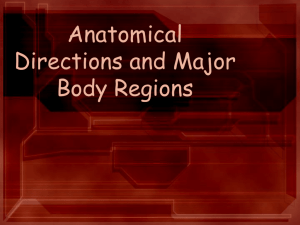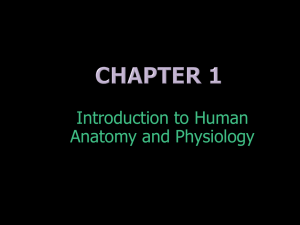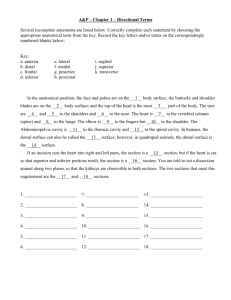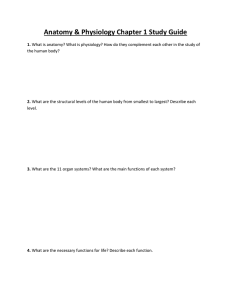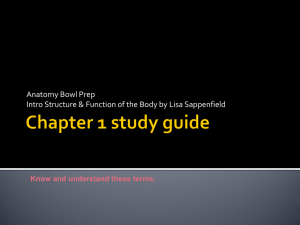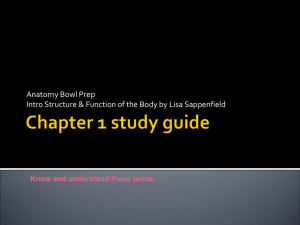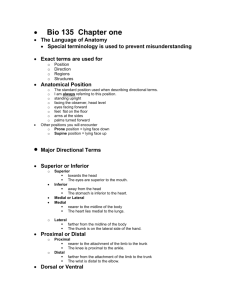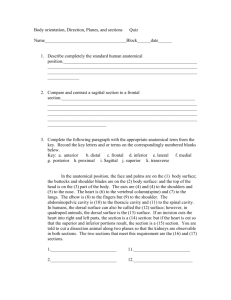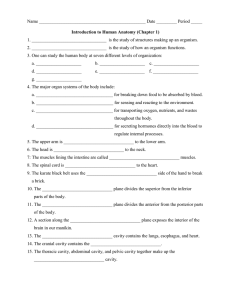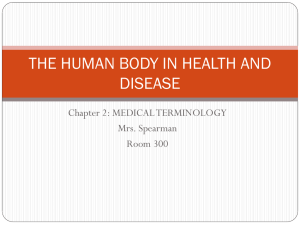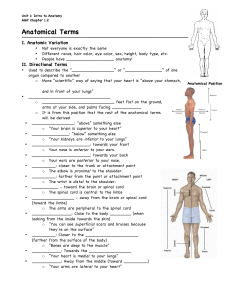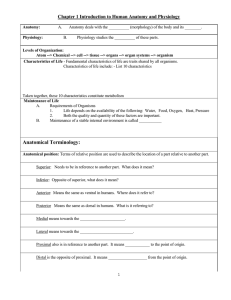Anatomical Terms
advertisement
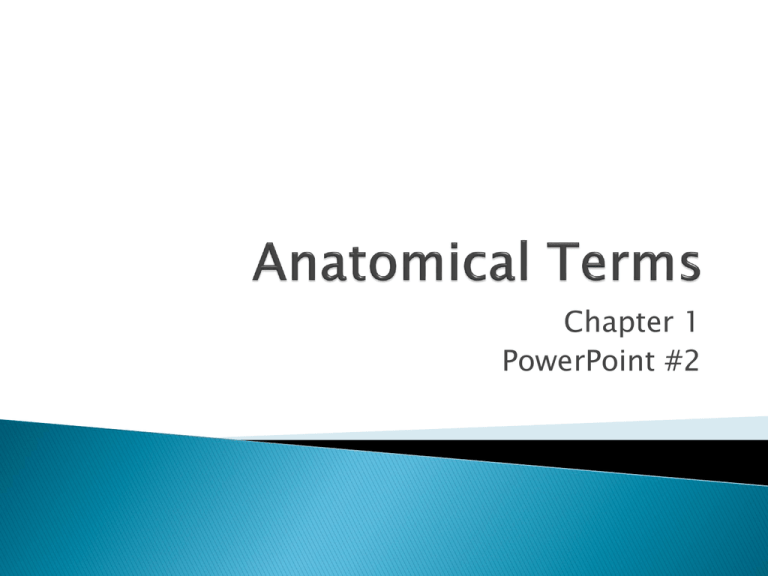
Chapter 1 PowerPoint #2 In anatomical position, the body is erect, with head and toes pointed forward and arms hanging at sides with palms facing forward. QUIZ: Stand and assume the anatomical position Very important that you understand directional terms are used relative to the midline of the body. There will be a difference if you are referring to bipeds vs. quadripeds (man vs. dog) Worksheet: Terms of position and direction Color as instructed. Use p. 12-13 and quiz a partner on orientation of body. Use sentence stems provided on p. 13 if that helps you, or make up your own. Anterior Vs. Posterior body landmarks, color in the sheets and study the terms. Use p. 13 as a study guide for the terms and meanings. This is like learning a new language, it will take a little time and work to get it. If you like flashcards make some with the term on 1 side and the description or picture on the other. Take a surface anatomy worksheet and try to fill in the labels when you feel comfortable with the new terms. Sagittal Section-cut made lengthwise, divides body into left and right parts Frontal section-cut made lengthwise that divides body into anterior and posterior parts Transverse section-cut made horizontally(cross section) divides body into superior and inferior parts. Worksheet: anatomic planes & sections Identify what is being asked on Quiz 1. Observe longitudinal and transverse sections activity Dorsal Body Cavity includes cranial and spinal cavity Ventral Body Cavity includes thoracic cavity which is separated by the diaphragm from the abdominal and pelvic cavity. It helps to divide into quadrants and regions when studying p. 5-6 of lab manual Activity: find regions of the abdominal surface on torso model & on yourself p. 6 lab Lab Manual p. 241-242 Test tomorrow!
